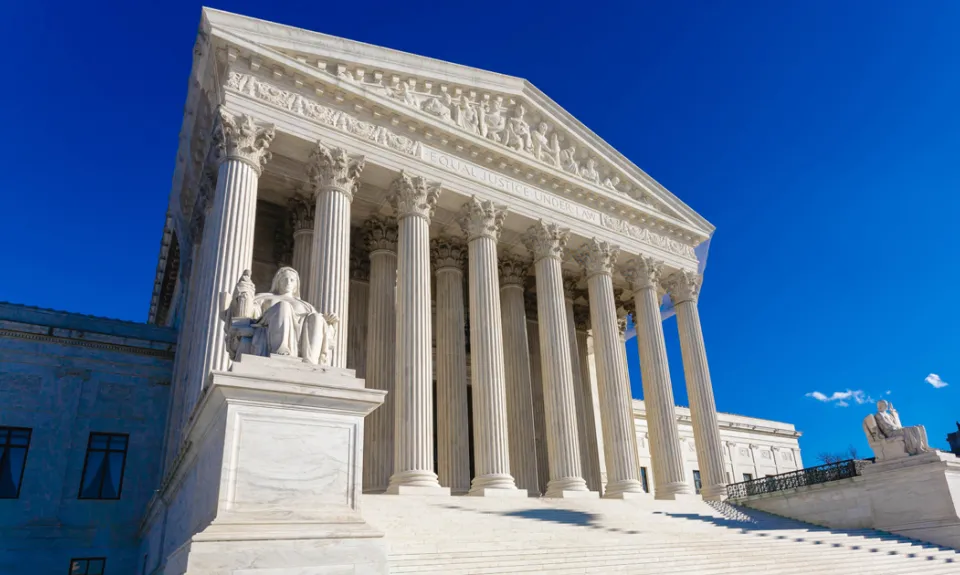Today the Supreme Court heard oral argument in what could be its most important civil rights case this term: Masterpiece Cakeshop v. Colorado Civil Rights Comm. In the case, Religious Right advocates claim that a bakery should be exempt from a law banning LGBTQ discrimination because the bakery that refused to bake a wedding cake for a gay couple was motivated by religious and free speech views. Along with Rabbi David Saperstein of the Religious Action Center, former ACLU legal director Steven Shapiro, the Baptist Joint Committee’s Holly Hollman, and 90-plus other members of the Supreme Court Bar who weren’t there early enough to actually get into the courtroom (which required showing up by 6:30 am), I listened to the argument live from the Court’s Lawyer’s Lounge starting at 10 a.m.
Kristen Waggoner of the far-right Alliance Defending Freedom argued first for the bakery. She was immediately pummeled by questions from Justices Sotomayor, Ginsburg and others on her free speech claim, with the justices pointing out that if the baker was engaging in free expression, so would be chefs, jewelry makers, hair stylists, invitation designers, and many others providing goods and services used in weddings and other celebrations. Both in questioning her and the Trump administration Solicitor general who also defended the baker, the concern of the four moderate justices (also including Breyer and Kagan) was clear: ruling for Masterpiece would open the door to carving out free expression of religious belief exemptions from any civil rights law, including those banning discrimination based on race, sex, and religion. Indeed, Waggoner admitted that Masterpiece could just as lawfully refuse to bake a cake for a mixed religion couple who wanted to get married.
Not surprisingly, right-wing justices like Chief Justice Roberts and Judge Gorsuch were tough on the Colorado Civil Rights Commission’s Frederick Yarger and David Cole of the ACLU, who argued for the gay couple. Roberts tried to suggest that ruling for the Commission would mean that it could force the Christian Legal Society to represent a gay couple against the baker.
The comments that all of us — and much of America — listened to most closely were those of Justice Anthony Kennedy, widely considered the swing justice whose vote will likely decide the case on a divided Court. Kennedy’s comments were split almost down the middle. On the one hand, he clearly expressed concern about "victims of discrimination" and about the "affront to the gay community" that would result if it became clear that businesses could discriminate against LGBTQ people. On the other hand, he was also concerned that the state civil rights commission was not truly "tolerant and respectful" of the religious views of people like the baker, singling out one commissioner who criticized religious faith.
The justices will meet in private conference on the case at the end of this week, but a decision is not likely until spring or summer of next year. With Justice Kennedy on the Court, there is at least a fair chance that the civil rights commission will prevail. That underlines the crucial importance, for all Americans, that Justice Kennedy remain on the Court so long as President Trump would get to name his successor.
